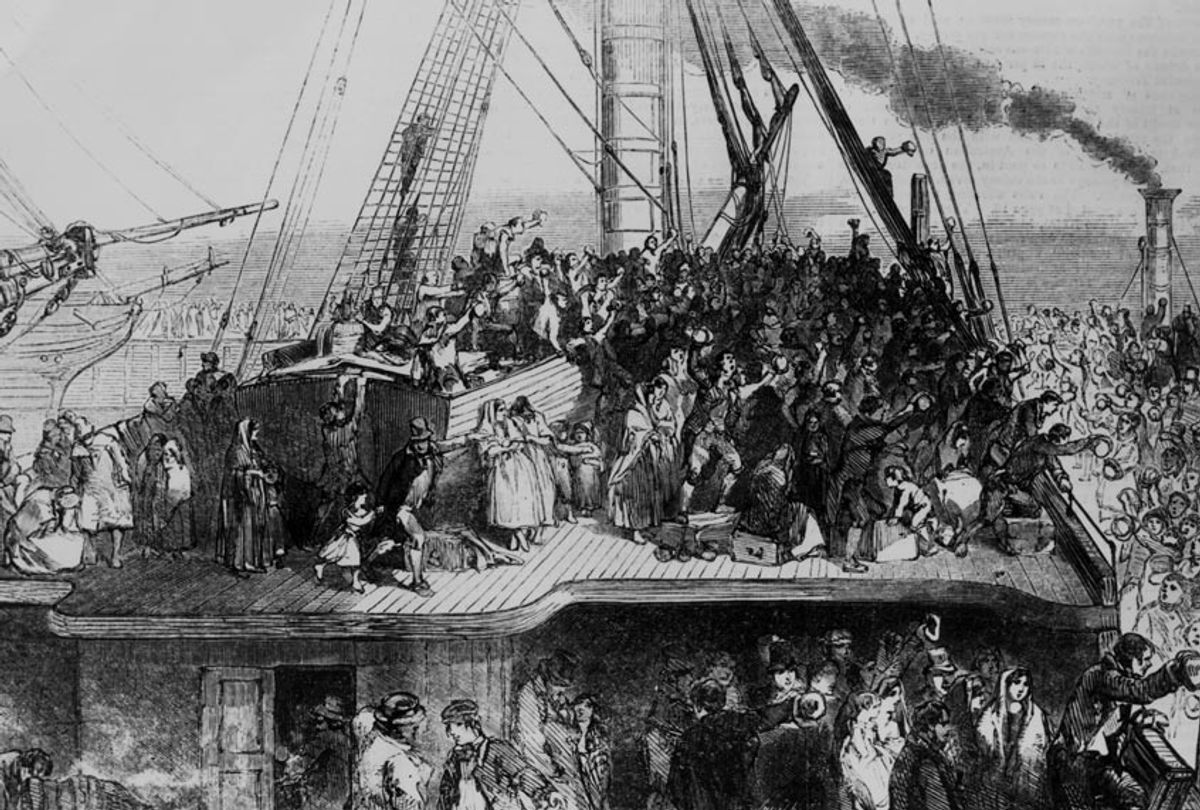- Seeds of Change Consulting Newsletter
- Posts
- Being Consciously Curious About Understanding Immigration
Being Consciously Curious About Understanding Immigration
IMPACTS OF NATIONALISM ON OUR COMMUNITIES

March brings us many things, such as: Women’s History Month, the Vernal Equinox (first day of Spring), Daylight Savings Time, and St. Patrick’s Day. This month we will examine ways in which nationalistic thinking has, and continues to have, negative impacts on new beginnings and equity within the process of growth. We understand the tenderness of taking on such a complex topic and ask for grace as we continue our own learning alongside each one of you.
WHAT IS NATIONALISM?
To understand what nationalism is, it’s useful to understand what a nation is – and isn’t.
A nation is a group of people who share a history, culture, language, religion or some combination thereof.
A country, which is sometimes called a state in political science terminology, is an area of land that has its own government.
A nation-state is a homogeneous political entity mostly comprising a single nation. Nation-states are rare, because nearly every country is home to more than one national group. One example of a nation-state would be North Korea, where almost all residents are ethnic Koreans.
The United States is neither a nation nor a nation-state. Rather, it is a country of many different groups of people who have a variety of shared histories, cultures, languages and religions.
IMMIGRATION AND WOMEN’S HISTORY MONTH
IMMIGRATION AND ST. PATRICK’S DAY
IMMIGRATION AND MIGRATION
SEASONS OF CHANGE
COULD YOU PASS? TEST YOUR KNOWLEDGE.
RECOMMENDED READING
COMMUNITY SUPPORT
 | "In a racist society, it is not enough to be non-racist. We must be anti-racist."Angela Davis |
















